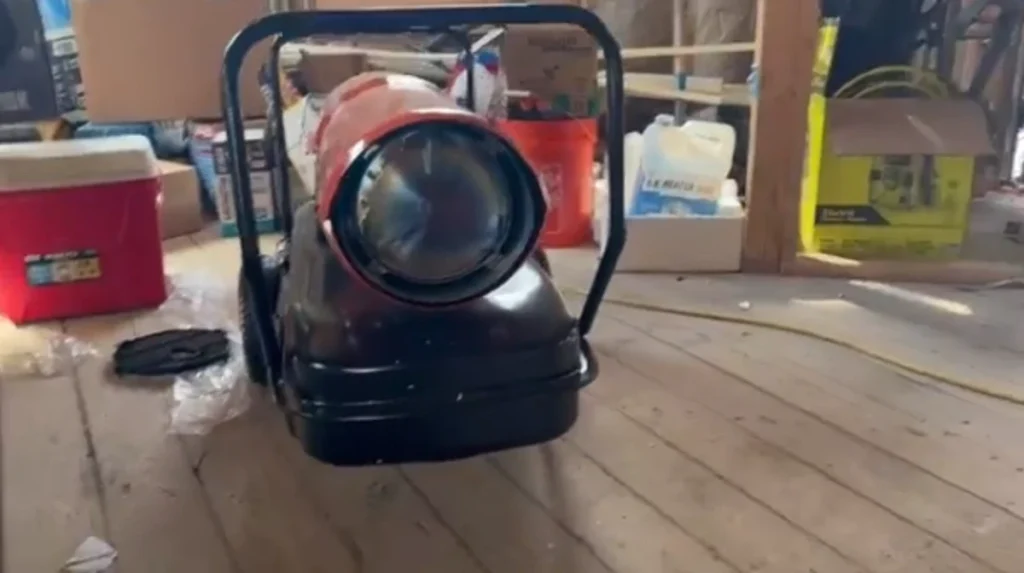Torpedo heaters, especially those fueled by diesel, are powerful heating units designed primarily for outdoor or well-ventilated areas. They operate by burning fuel to produce heat, and this process inherently generates carbon monoxide (CO), a colorless, odorless gas that can be deadly if accumulated in high concentrations. The safety of indoor use of diesel heaters is a concern because enclosed spaces can allow CO to build up to dangerous levels, posing a serious risk of carbon monoxide poisoning.
For those considering the use of a diesel torpedo heater indoors, it is crucial to ensure that the space is well-ventilated. Windows and doors should be opened to allow fresh air circulation, and the heater should never be left operating unattended.
Installing carbon monoxide detectors in the area can provide an early warning of CO buildup, allowing for prompt action to be taken to ventilate the space and turn off the heater if necessary.
Despite these precautions, the consensus among safety experts is clear: diesel torpedo heaters are not safe for indoor use due to the inherent risks associated with carbon monoxide.
For indoor heating solutions, it is advisable to seek alternatives designed with indoor safety in mind, which include features to minimize the risk of CO exposure.
Mechanics of Diesel Torpedo Heaters
Diesel torpedo heaters are robust devices that generate heat through the combustion of diesel fuel. The process begins with diesel being fed into a combustion chamber where it is ignited, typically by a spark plug.
This ignition creates a controlled explosion within the chamber, producing heat. A fan then propels this heat outward, allowing the heater to warm a large area efficiently.
The design of these heaters enables them to deliver a high heat output, which makes them ideal for heating open spaces rapidly.
You Might Also Like: 6 Best Forced Air Propane Heater Reviews
Indoor Safety of Diesel Torpedo Heaters
Comparing diesel torpedo heaters with other heating options raises significant safety considerations. Unlike electric heaters, diesel units emit exhaust, which contains carbon monoxide—a hazardous gas that can lead to poisoning if the area is not properly ventilated.
While some models come equipped with low oxygen shut-off systems to mitigate risks, the consensus among safety experts is that these heaters are best reserved for outdoor use or in spaces with ample airflow.
For indoor heating, alternatives like electric or infrared heaters are recommended, as they do not produce harmful emissions.

Ideal Settings for Diesel Torpedo Heaters
Construction Sites: These heaters excel in open-air environments or under-construction buildings where insulation is not yet installed.
Warehouses: Large storage facilities with proper ventilation can benefit from the powerful heat output of diesel torpedo heaters.
Agricultural Settings: Farms and barns, where proper ventilation is inherent due to the nature of the structures, can use these heaters effectively.
Outdoor Events: For gatherings in tents or open canopies during colder months, these heaters can provide the necessary warmth.
Auto Repair Shops: Spacious garages with high ceilings and ventilation systems can safely accommodate diesel heaters to keep workers warm.
Pros and Cons of Using Diesel Torpedo Heaters Indoors
Pros:
- High heat output suitable for large spaces
- Portable and easy to relocate as needed
- Durable and designed for heavy-duty use
Cons:
- Risk of carbon monoxide poisoning without adequate ventilation
- Can be noisy, which might be disruptive in certain settings
- Requires a steady supply of diesel fuel, which can be costly
Learn More: 4 Best Oil-Filled Radiator Heaters
